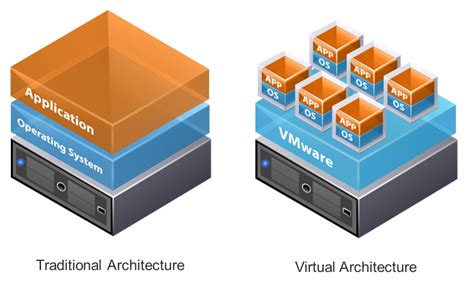The recent announcement that VMware Fusion Pro is now available free for personal use has sparked a range of reactions from users, shedding light on the trends and challenges in the desktop virtualization space. While some users welcome the move towards free personal usage, concerns have been raised about the long-term viability of the software under Broadcom’s ownership. User comments have highlighted the shifting landscape of virtualization software, with mentions of alternative platforms like Proxmox and Hyper-V taking center stage.
One of the recurring themes in user comments is the impact of VMware’s pricing strategies on customer loyalty and the overall perception of the brand. Users express mixed feelings about the direction VMware is taking with its licensing models, with some questioning the company’s commitment to non-enterprise users. This shift towards a subscription-based model for commercial usage has raised doubts about the sustainability of VMware Fusion Pro in the competitive virtualization market.
Amidst discussions about VMware Fusion Pro, comparisons with other virtualization solutions such as VirtualBox, Parallels, and open-source options like Proxmox and QEMU have emerged. Users share their experiences with different platforms, highlighting the importance of factors like 3D acceleration, ease of use, and platform compatibility. The debate between proprietary and open-source virtualization tools reflects the evolving needs of users seeking performance, flexibility, and cost-effectiveness.
The user comments also touch upon broader trends in desktop virtualization, including the rise of container technologies and the challenges faced by traditional hypervisors. While VMware Fusion Pro and Workstation have served as staples for many developers and IT professionals, the emergence of alternatives like Docker, WSL, and native virtualization frameworks has led some users to explore new solutions for their virtualization needs. The evolving landscape of virtualization technology underscores the importance of adaptability and innovation in meeting the diverse demands of modern users.
As the virtualization market continues to evolve, users are faced with a plethora of choices for running virtual machines on different host platforms. Whether it’s running Windows on macOS, Linux on Windows, or cross-platform development environments, the demand for versatile, high-performance virtualization tools remains strong. While VMware Fusion Pro’s shift to a free personal use model has generated discussion and debate, the future of desktop virtualization promises to be dynamic and competitive, driven by the needs and preferences of a diverse user base.
In conclusion, the feedback from users on VMware Fusion Pro becoming free for personal use reflects a broader narrative of change and adaptation in the virtualization landscape. From concerns about Broadcom’s ownership to comparisons with rival platforms, user comments provide valuable insights into the evolving dynamics of desktop virtualization. As users navigate the plethora of virtualization options available, the key considerations of performance, compatibility, and cost-effectiveness will continue to shape the choices and preferences of virtualization enthusiasts in the years to come.


Leave a Reply